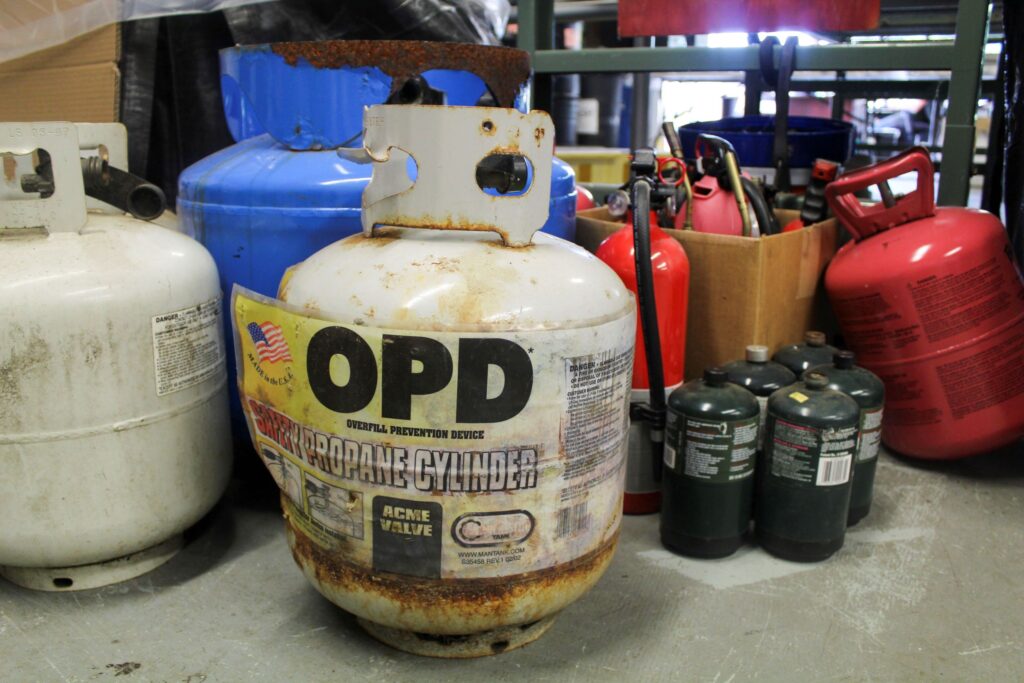From that just-used gas-powered mower to that camping stove gathering dust in the attic, you might be surprised how much household fuels you have in your home – not even including those for your car. But once these products expire (and they do) or you no longer need them, how do you dispose of these obviously hazardous household products? Today, we’re going to look at how to store, handle, and dispose of the various types of combustible fuel you may have at home.
Storing Household Fuels
First, before you can think about disposable or replacement, you need to make sure your fuel is being stored safely. For gasoline, propane, and other flammable liquids and gasses, the storage rules are similar:
- Temperature: Store in a cool, dry place without exposure to direct sunlight. This will avoid dangerous temperatures and help contain outgassing issues (see below).
- Ventilation: While gasoline and propane should be stored in airtight containers, the space should also be ventilated to the outside to avoid the buildup of flammable gasses, as well as hazardous gasses such as benzene, a known carcinogen.
- Safety: This space should not be accessible to young children and pets and shouldn’t be near ignition sources such as open flames or sparks.
Disposal of Household Fuels & Containers
Fuels such as gasoline or propane cannot be disposed of at home, including their containers. Not only do these containers contain enough residual chemicals to be hazardous, but garbage and recycling companies also will not pick them up for the hazard they represent to their vehicles. Instead, you’ll need to dispose of these products yourself. You’ve got a few options.
- Tank Exchange: For small propane tanks, such as for grills, there may be a return or exchange program by local propane providers – assuming your tank is still viable. Tanks have a limited lifespan, and any damage or rusting may require alternative options.
- Unused Fuel: Unlike with empty tanks, partial or full gasoline or propane containers will need to go to a hazardous waste facility. Since gasoline does expire, gasoline providers will not accept refunds. If the fuel is fresh, check with neighbors who may need some for their own devices.
- Community Recycling and Disposal: Your municipal hazardous waste center may have locations or community events as options. If you don’t have a community event scheduled for your neighborhood and live in Massachusetts, ask your Board of Health to visit our BOH Services page to set one up.
The NEDT Household Hazardous Products Collection Centers can also help. We’ve got multiple locations to help New Englanders dispose of household fuels and many other common hazardous products. Learn more about what we accept and educate yourself more on gasoline and other household hazardous products with our Fact Sheets. We also provide pick up services: contact us today to learn more.



Leave a Reply